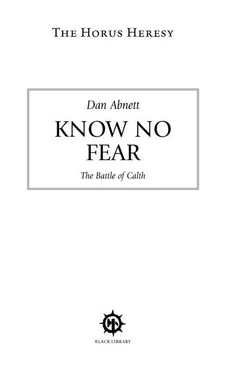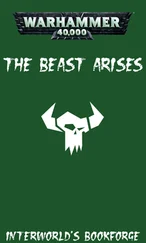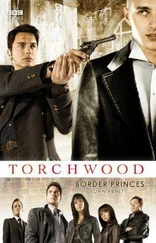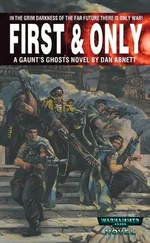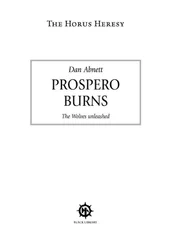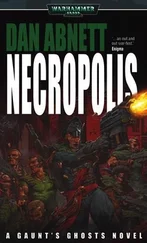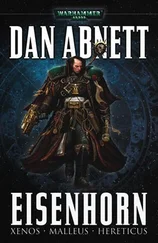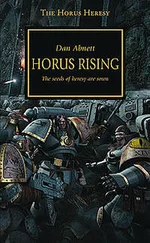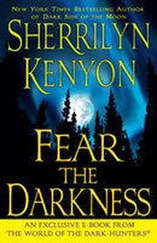In the dark pits of drive rooms and engineering chambers, hosts of stokers and allworks slave away with furious effort. The chambers are infernal, soot-caked and lit by the ruddy glare of the vast engines and reactor furnaces. Armies of stokers, sweat-sheened and roaring, eyes like white stones in blackened faces, shovel fuel ores and promethium pellets into the iron chutes. Servitor crews, their metal skins colour-bruised like old kettles by the constant heat, lever and haul on the throbbing activator rods that quicken the drive plants. Coal-black chains swing. Bellows wheeze and flush dragon-breath balls of roiling fire up flues and vent pipes. Abhuman labourers, troll-like and grunting, swelter as they drag in monolithic payload carts of raw fuel from the silo decks.
There is frenzy here, panic that is barely kept at bay by the lashes and orders of the engine room masters. There are no windows, no way of appreciating the outer universe or the threats it may contain.
In truth, the envied bridge crews in their glass and gilt towers far above have no better understanding of the calamity than the blind stokers down in the dark below. Knowledge of this irony may not have enhanced the stokers’ confidence.
Many will never know the light again. Some of the ships slain during the Calth Atrocity will continue to circle the tortured star for a hundred thousand years as frozen wrecks, as tomb ships for the silent dead, mummified and preserved in the act of screaming their final screams.
[mark: 0.00.20]
Ventanus and Selaton hit the ground. The drop is severe. Their strength and their armour absorb the impact, and they come up, bolters ready. Dust and ash films their armour plate.
They move.
The module reaches the ground behind them, shredding open as it lands. The noise is huge, a splintering of metal. Behind the module comes the best part of one of the pylons. They can hear steel hawsers parting like bolter shots. Broken fastener pins, released by the extreme tension, whistle through the air like micro-missiles.
Selaton and his captain outrun the falling pylon. It collapses like a tranquillised animal, buckling at the knees, and then falling from loose hips, then from a slack neck that turns back against the direction of the fall. Dust erupts in a rolling wall, as if driven by the sound of tearing steel. Ventanus and Selaton bound out of the dust wall.
The landing platforms ahead of them are covered with debris and corpses. Ventanus blanches as he sees fallen Ultramarines. Bolter fire has reamed and split their beautiful cobalt-and-gold armour. He sees one man who died carrying a regimental standard. It is a golden symbol of the Legion surmounting a double eagle. The banner pole is clenched so tightly in his armoured fists that his grip has marked the haft.
This was an honour guard. A ceremonial squad cut down as it prepared to board. Nearby, the bodies of city dignitaries, of trade officials, of seneschals, of aides and cargo foremen. They are bloody ruins: split sacks of meat and torn clothing. They were cut down by weapons designed for post-human war, weapons that could slay and have now slain the Legiones Astartes.
Weapons whose effects on unmodified, un-enhanced, unarmoured humans amount to overkill.
Selaton slows to a halt. He regards the litter of dead.
‘Move!’ Ventanus orders.
‘They were waiting to board,’ says Selaton, as if this matters.
Ventanus stops and looks at his sergeant.
It is so obvious, and yet, he missed it. It has taken Selaton’s less experienced mind to see the simple truth.
They were waiting to board. They died waiting to board, banners and standards raised. But it is, perhaps, fifteen or twenty minutes since the disaster struck, fifteen or twenty minutes since the orbital detonation that began the deluge of fire.
Did they stand there all that time, still waiting to board as the world caught light around them?
‘They were already dead,’ says Ventanus. ‘Dead, or dying.’
This murder predated the disaster. At best, it was simultaneous. The disaster was no accident.
Gunfire shrieks across the platforms. Las-fire spanks off the blast walls behind them. Bolter shells corkscrew the smoke they cut through. Impacts occur all around.
Ventanus sees Word Bearers advancing out of the filthy air. Troops move up with them, Army cohorts with lasrifles and halberds.
They’re shooting at any target they can see.
Selaton, still confined by the ethical parameters of the universe he used to understand, asks the obvious question.
‘What do we do?’ he says. ‘What do we do?’
[mark: 0.01.00]
Aboard the Samothrace, Sorot Tchure performs his second ministry.
His men are already killing most of the ship’s primary crew. Advancing to the main bridge, burning through blast hatches that had been closed in desperation, Tchure comes face-to-face with the ship’s captain, who solemnly announces his disinclination to assist Tchure, no matter what threat is made.
Tchure ignores the officer. He is a yapping gatehouse dog that is too ignorant to know better. He is barking futile defiance at the carnodon that has just entered through the gates.
Tchure grasps the captain’s head in his right hand and squashes it like an uncooked egg. He lets the body drop. The bridge crew gawps at him, realising that their predicament is far worse than they ever imagined. When a ship is seized, bridge crew can ordinarily safeguard their lives in exchange for their vital technical services.
The bridge officers of the Samothrace see their captain murdered, and realise their services are not required.
Several pull sidearms, despite the fact that they are unmodified humans dressed in cloth and braid, despite the fact that they are outnumbered by martial transhumans who have just cut their way into the main bridge space, despite the fact that their laspistols will not even dent the armour of the invaders.
Tchure is in the newer Maximus plate, as befits his command status. Crimson is the first colour his suit has ever been painted.
‘Death,’ he instructs as a las-round tangs off his shoulder plate.
The Word Bearers use their fists, guns slung. Tchure doesn’t want mass-reactive shells destroying the vital control stations of the bridge. They break men. They grab them and snap spines and necks, or mash skulls, or tear out soft throats. The officers have nowhere to run, but they run anyway, screaming in terror. They are grabbed and picked up by the hair, by the coattails, by the ankles and wrists, grabbed and picked up and killed. The bodies are slung in a pile in the centre of the deck in front of the late captain’s throne.
Tchure observes the work. He raises his left wrist, and speaks into the glass-and-wire mechanism welded there. It is inscribed with the mark of the sacred Octed. The dark, glistening thing living inside the wire-wrapped bottle does not send his words like a vox. It simply repeats them through other mouths in other places.
Hearing the signal through their own warp-flasks, the Mechanicum magi advance onto the bridge. They are all of the cadre that has sided with the Warmaster. They have turned their backs on Mars and Terra. Subtle variations in their robes and insignia already show this change of alignment, but most of all there is a darkness to them. They wear the mystery of their technological craft around them like a shadow.
‘The ship is seized,’ Tchure tells their leader. The magos nods, and instructs his men to bridge positions.
‘Ten minutes, and we will be mobile,’ the magos tells Tchure. ‘Motivation is coming to yield.’
‘Zetsun Verid Yard,’ says Tchure, naming his destination. The yard is a smaller, specialist facility that forms part of the orbital archipelago where the Samothrace has docked.
Читать дальше
